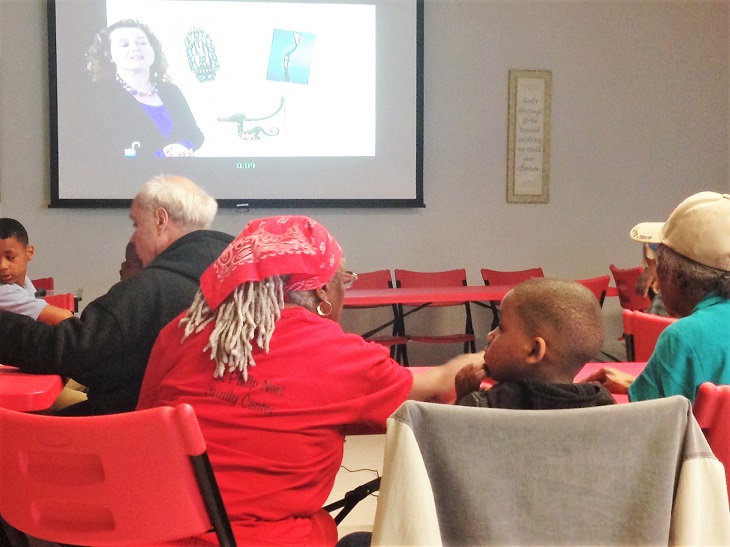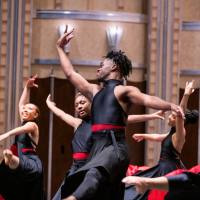Guest blog post by Encore Cleveland Consultant Wendy Albin Sattin, AICP
Two heads – one dark-haired, the other grey – are bent over a map of Africa. One belongs to a ten-year-old boy in the afterschool program at the Fatima Family Center in Hough, the other to an Encore Cleveland volunteer that participates in the senior programming. Approximately twelve pairs of learners just like the pair described are seated throughout the room. On the TV screen at the front of the room, an instructor from the Cleveland Museum of Art explains the symbolism painted on an African mask from the museum’s collection.
We are attending University Circle Inc.’s Encore Cleveland Distance Learning Project, which brings the Cleveland Museum of Art to Fatima Family Center through the magic of videoconferencing. Everything is in real time – the learners at the Fatima Family Center have a direct, live connection with the instructor from the museum. Questions and answers go back and forth; comments are offered.
The best part of the afternoon is watching different generations interact. I witness the gentle guidance and positive encouragement provided by the Encore Cleveland volunteers, and their pride when their student partner answers a question. I see respect and trust in the faces of the children as they work with their “senior” partner. Most of all, I see smiles. Everyone is having fun and enjoying the learning experience together.
Much has been written about the benefits of intergenerational programming. It helps build community, encourages learning, provides role models for youth and increases social networks. According to the Journal of Urban Health, “(O)lder adults who regularly volunteer with children burn 20% more calories per week, experienced fewer falls, were less reliant on canes, and performed better on a memory test than their peers.”
And what about the actual learning taking place? There are benefits there too. The Rush Memory and Aging Project, conducted in 2012 in Chicago, showed that an increase in conscious mental activities, such as thinking, understanding, learning and remembering, in older adults slowed the decline in cognitive function and decreased their risk of mild cognitive impairment. Knowing these benefits, it’s remarkable to think how much was happening in that room at the Fatima Family Center – far more than simply filling in the names of countries on a worksheet about an African mask. This quote by Gilbert Highet, teacher, scholar and author, describes it nicely:
“Wherever there are beginners and experts, old and young, there is some kind of learning going on, some kind of teaching. We are all pupils and we are all teachers.”




Wonderful to read of this terrific initiative.
Thanks so much for posting.
Best wishes,
Dale Hilton
Fantastic program. One that will also help the younger generation to appreciate their elders but also the aging process themselves.